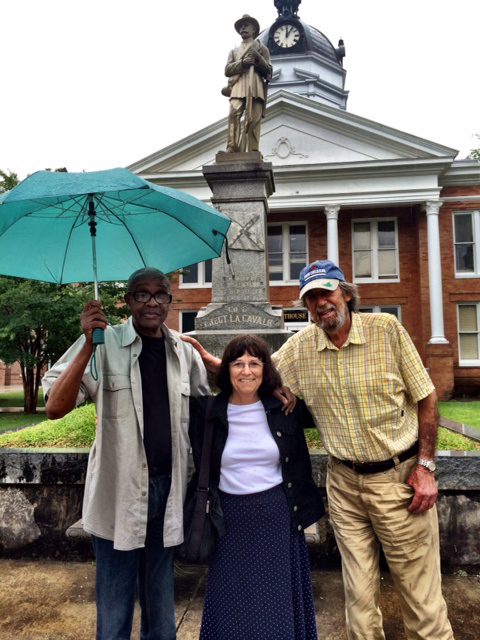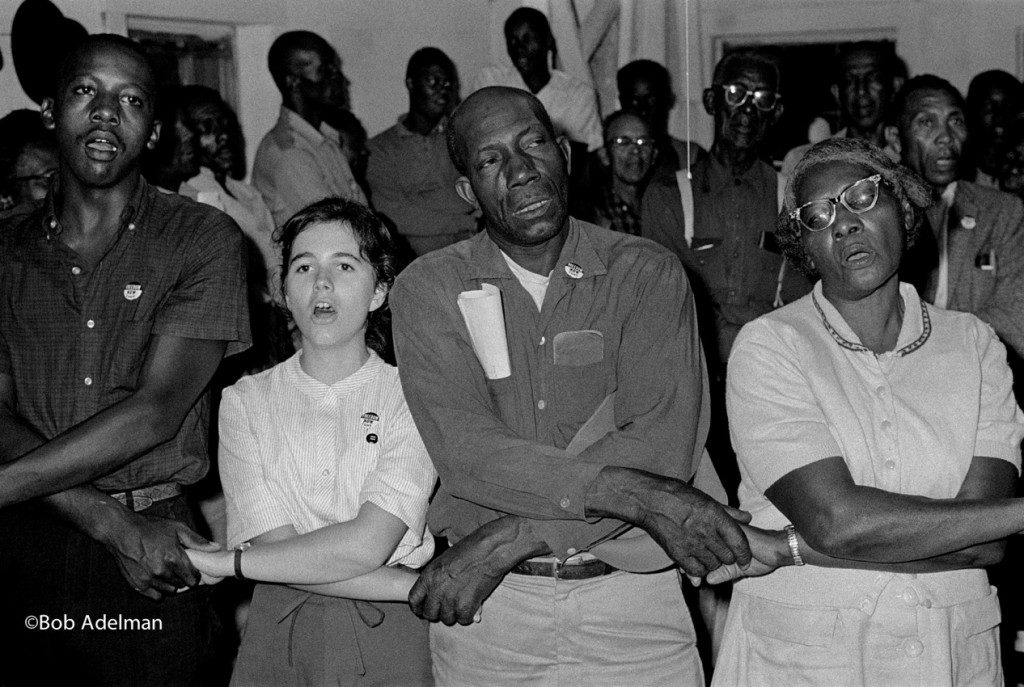Freedom Riders Ride Again

Several of us had an extraordinary meeting yesterday afternoon at the coffee shop in town. This year marks the 50th anniversary of Freedom Summer, the drive to register black voters down South as part of the civil right struggle. Volunteers and organizers who worked in Louisiana got together in New Orleans last weekend for a 50 year reunion. The New Orleans Advocate reported on the gathering:
As a student at Southern University, [Ronnie] Moore [see photo above] helped found Louisiana CORE. He and 20 other students were expelled from school by the state for attempting to integrate lunch counters. Moore was arrested 15 times, served six months in jail and spent 57 days in solitary confinement.
“There was a time when we responded to a force that was greater than ourselves,” Moore said. “I was at my best.”
Mimi Feingold was part of the group. A Brooklyn native, she had gone to prison in Mississippi for her role organizing voter registration there. Later, she worked in part in West Feliciana. Here is a photo of her in West Feliciana in 1963:
In a lengthy 2012 interview for an oral history project, Mimi Feingold Real talked about those times. Excerpt:
We all faced the same kinds of dangers and enormous resistance. While I was doing that work I was living in one of those little towns and a cross was burned on my lawn. Another time when I was with a group of people downtown, helping and waiting with people who wanted to register to vote, everyone left and we got into our car. When we were pulling our car away someone shot at the car and missed. The local people who tried to register to vote were beaten, some lost their jobs, and some lost their land. There were enormous repercussions to voting and trying to vote.
It was like something from another century. It was hard to believe it was happening in 20th century America where everyone was free and had a right to vote. It is in the Constitution where no one could be denied the right to vote on the basis of their skin. That was being violated and nobody was doing anything about it.
The town where that happened? St. Francisville. In fact, it happened virtually right outside my door. Here, Michael Lesser points to the spot on Ferdinand Street where their car was when the shot rang out:
Please take the time to read this 1964 magazine article that describes what these three and their colleagues were doing in my town to get themselves shot at. The author is Bob Adelman, whose civil rights photographs (such as the one of young Mimi Feingold above) are an invaluable record of the era. Excerpt:
The bus pulled up in front of the St. Francisville courthouse. About 100 whites milled around in front of the building. … “Look at ‘em over there like a bunch of buzzards,” shouted one white. “Look like coons,” taunted another. “Are those your good niggers?” shouted still another white man. Curses and racial epithets disturbed the morning air.
… Rev. Carter signed a vote registration book and received a receipt. As he left the courthouse, a photographer snapped him. “Take his picture,” shouted a member of the white mob. “It may be the last one he takes.”
I was born three years after these evil events, and they really do read to me like they took place in another country. It was another country back then — and we are a better country now thanks to the courage and tenacity of men and women like these three, and to the courage and tenacity of countless black men and women throughout the South, whose names will not be recorded by history, but who finally had enough, and demanded that they be treated as Americans.
My friend Susan and I stood in the rain near the courthouse yesterday, and thanked these three for what they did for our parish. They came to help black folks, but they ended up helping us all. Their story reminds us that freedom is never free.
UPDATE: Here are some oral histories of the civil rights era from African-Americans in West Feliciana Parish.



Subscribe for as little as $5/mo to start commenting on Rod’s blog.